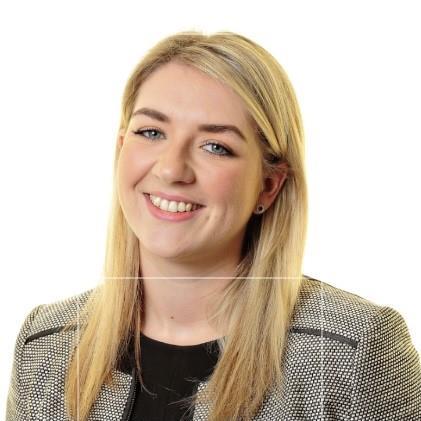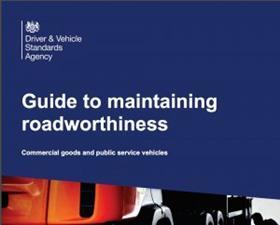
Charlotte Hunt was appointed transport and regulatory solicitor in the growing London office of law firm Weightmans in August 2021 after almost five years with Woodfines. Having completed her law degree at the University of Hull in 2014, Hunt harbours what many would regard as an unusual ambition for someone who has only just turned 30 – to become a traffic commissioner (TC).
While most TCs are still men, Hunt would be following in some illustrious female footsteps, including Sarah Bell, TC for London and the South East of England, Scotland TC Claire Gilmore and the recently appointed TC for Wales, Victoria Davies. And who could forget fiery Beverley Bell CBE, pictured below, the first female TC when she was appointed to oversee the North West of England in 2000 and senior TC for five years until her retirement in 2017.

Although once in it is a hard industry to leave, road transport is not in itself a career of choice for many people, so how did Hunt end up specialising in the field in the first place?
“I had always dreamt of being a doctor because I wanted to help people, but when it came to my A-level selections I realised with a phobia of blood and needles, I may need to rethink my career selection,” she says. “Pursuing a legal career was the next natural choice for me, allowing me to work with people, problem solve and make a difference to clients I would work with.
“When I started my training contract, I was placed into my first seat within a crime and regulatory department. The firm had a historic transport background falling within that department, and very early on, it became an industry I really enjoyed working in.
“I cannot imagine doing anything else now and am very thankful for having the level of exposure I did so early on in my career. Coincidently, my great grandfather ran a haulage company delivering bricks from Stewartby Brick Works. I never had the pleasure of meeting him but grew up listening to the stories about the yard. Maybe subconsciously this played a part!”
Ignorance is never bliss
Hunt says that most of her clients transgress through ignorance rather than wilful negligence. This is often especially true of smaller own account and often family business or for those whom running trucks is not their core business.
“The transport industry is highly regulated, and people do fall foul of the law. When you speak to clients, I have so much respect for the amount they juggle on a day-to-day basis. Operators throughout the pandemic have faced real challenges, yet still continue to deliver fundamental services with a smile,” she says. “While it is absolutely not an excuse, operators can lose sight of the core undertakings and changing goal posts that the industry throws at them.
“I see part of my job as educating and signposting best practice to operators who have maybe lost their way with some of the basics while operating an otherwise impressive business. In particular, a recurring theme remains the misunderstanding surrounding brake tests.
“My aim to assist operators in the long term, not just providing the immediate reactive support. It was this ability to assist which resonated with me because there is no area of law like it.”
Operators will ask for legal advice on a specific question such as what to do if a driver card isn’t available or there is an issue with a driving licence to see if there is a way around the problem without breaking the rules. But there is of course still a reactive element to Hunt’s legal work when an offence is suspected, and a client has had a visit from the DVSA.
“I’d say 60% of my time is spent dealing with reactive work, such as public inquiries, and 40% dealing with compliance,” she says. “Transport lawyers tend to be a stress purchase as companies can live in blind faith that everything is OK because nothing has ever gone horribly wrong.
“Unfortunately, sometimes complacency can be a trigger in itself.”
CPD not a legal requirement

Many people find it surprising that, while HGV drivers are required by law to do 35 hours periodic training every five years to maintain their Driver CPC, there is no similar legal requirement for transport managers (TMs) to keep their CPC up to date through continuous professional development (CPD).
“A transport manager with a CPC has to complete a two-day refresher course every five years,” says Hunt. “I often advise clients to keep a CPD log for their personal reference alongside this, even if it includes reading a gov.uk update, review of updated DVSA guidance or attending a legal conference.
“If a transport manager’s competency was then ever questioned, it would assist in demonstrating up to date knowledge and effective management of personal development and training.”
Some of the biggest areas where Hunt sees operators falling foul of the law are brake testing and tyres, but drivers’ hours remain a perennial source of non-compliance.
“Drivers’ hours rules are complex,” she says. “It can be particularly difficult where operators try to operate under both the EU and GB domestic rules across different vehicle and work type. However, I mainly see repeated roadworthiness and maintenance issues or basic undertakings, such as notification of material changes, not being adhered to.
“I always describe best practice maintenance as a spider’s web because everything needs to mesh together and supports one another. If a driver is conducting an effective walkaround check, defects are appropriately rectified, then this should underpin the correlating PMIs, which in turn support MoTs.”

In 2015 four people were killed when a laden tipper suffered “catastrophic” brake failure and ran out of control while going down Lansdown Hill in Bath. The operator and mechanic were jailed for manslaughter over “obvious” maintenance failures.
“There is no doubt that brakes have always been fundamental in ensuring road safety, but in my career so far, the attitude towards best practice has been the biggest transformation,” says Hunt. “When I started, it was not spoken about half as much as it is now. The Bath tipper case haunts the industry, and the focus remains on what is and should be best practice when conducting them.”
The DVSA later established its Earned Recognition scheme to enable compliant operators to submit key data on their drivers’ hours and vehicle roadworthiness history and so reduce their risk of being picked out for routine checks, leaving examiners free to focus on the seriously non-compliant element of the industry.
“An audit scheme will always have positive and negative features,” Hunt says. “You could sense the initial apprehension within the industry about sharing information with their enforcement agency.
“The road transport regulatory sphere is very different from other sectors. Earned Recognition is all about openness and transparency which enhances the relationship of trust between operator and the TC – yes there are the KPIs which some say are difficult to achieve and require monetary investment in systems, which sadly some smaller operators cannot support.
“However, any scheme to improve road safety can only be positive for the industry, operators, transport managers, drivers and the public.”
Undecided on voluntary accreditation
Hunt is however more undecided about some of the other voluntary accreditation schemes.
“An audit scheme is only ever as good as an auditors’ assessment,” she says. “If an assessment looks at policies and procedures in place in isolation, it does not necessarily mean they are practically working as they should or are embedded practices. Companies in every industry have to be careful that having policies and procedures in place does not allow them to become complacent if on the ground they are not reflected in practice.
“In reality, if there are hundreds of pages of compliance documents, do the people who need to actually understand them? Have they even read them? Sometimes, a simple yet effective message to be disseminated can be best.”
A lot of TMs fall foul of the TC when a third-party maintenance provider lets them down and fails to keep the vehicles roadworthy. As TCs often point out, it is the O-licence holder who is responsible for repairs and maintenance, not the workshop.
“A maintenance provider is never going to be at a public inquiry,” says Hunt. “They do not answer to the traffic commissioner because they do not hold an operator’s licence. The buck will always stop with the operator.

“Have you even sent the guide to maintaining roadworthiness to your maintenance provider or set out your expectations to your maintenance providers? While you may not physically be checking the brakes, on return of the inspections, it is important to understand what the efficiency print outs are telling you which you are signing to confirm are OK.
“If you are unsure about an entry or think a test hasn’t been conducted properly, check. It makes commercial sense to ensure that the people you contract with are doing what they should to support your compliance obligations.”
An alarm bell for any TM should be consistent zero defects being found by the drivers on their daily walkaround checks, as unless a vehicle is brand new or on very short PMI intervals it is highly unlikely it will be in perfect condition every shift.
“If you see repeated nil defects being returned, does that mean the driver doesn’t really know what they should be looking at during their walkaround check?” asks Hunt.
The interval between PMIs often defaults to six weeks for many operators, but Hunt says every operator should assess what is the most appropriate regime for their fleet.
“Selecting the appropriate inspection interval depends on considerations including the age of vehicles and what type of work is being undertaken,” she says. “For some operations it may be appropriate to have four-weekly checks. It is common for me to see six- to eight-weekly intervals but that doesn’t mean it is appropriate for all and it is an operator-by-operator assessment. Equally, the assessment of what is appropriate is likely to change over time.”
Earned Recognition requires electronic gathering and reporting of drivers’ hours and maintenance logs, and this in itself can be quite a novelty for some small to medium sized fleets. In theory moving from reams of paper records to computers should improve the speed and accuracy of reporting but it can lead to the temptation to just tick the right boxes without checking what is on screen reflects reality on the ground.
“If an individual is complying by ticking a box, they are probably going to keep to doing the same regardless of whether it is a paper or electronic record,” says Hunt. “One benefit however of moving to electronic reporting that I have seen is the ability to introduce recorded photographs on the device. I think that this can be a really useful tool.
“It is also improves the speed of communication because the transport manager can have instant access and knowledge a record, such as a defect walkaround check has been completed, as opposed to the time delay in a driver handing in a carbon copy to the transport office.”
Why would you aspire to be a traffic commissioner?
What is it about the quasi-judicial role of the eight TCs (assisted by their deputies) who regulate HGV and PSV operators in the UK that appeals to a young transport solicitor?
“Since I have been in the transport arena I have learnt a lot from the TCs I have appeared before,” says Hunt. “They have a fundamental and important role in upholding fair competition and road safety.
“This year, I have personally been impacted by a road collision involving a HGV and seen firsthand the devastating consequences. At times, although regulations may feel arduous, they fundamentally have a purpose in keeping businesses, employees and members of the public safe. It seemed natural that this would become an aspiration of mine.

“It can be a scary process appearing before a traffic commissioner – when you are at an inquiry your whole business is on the line and that’s what some people don’t appreciate soon enough. If you cannot run your business without an operator licence, losing it would be the number one risk to your business and arguably can you therefore ever do enough to protect it?”
As well as being judge, jury and executioner as far as operators’ O-licences are concerned (although there is an appeals process, only four out of 57 appeals made in 2020/21 were partially or wholly successful) TCs believe that an important part of their role is to guide operators along the route to compliance. They rarely turn down an invitation to speak at a conference if it provides an opportunity to explain their role and how operators can avoid meeting them again at PI.
“I don’t think there are many regulatory settings where the same can be said,” says Hunt. “That comes down to the transparency of the regulatory arena which is again very different from other sectors. It is always a pleasure to hear from the traffic commissioners when they speak at conferences.”














